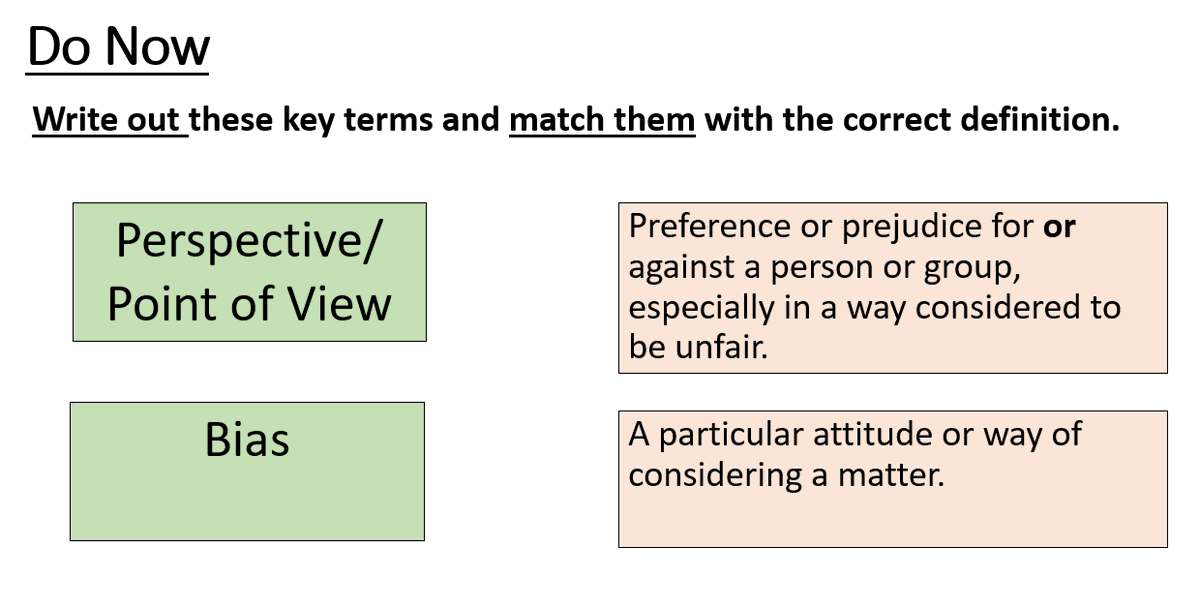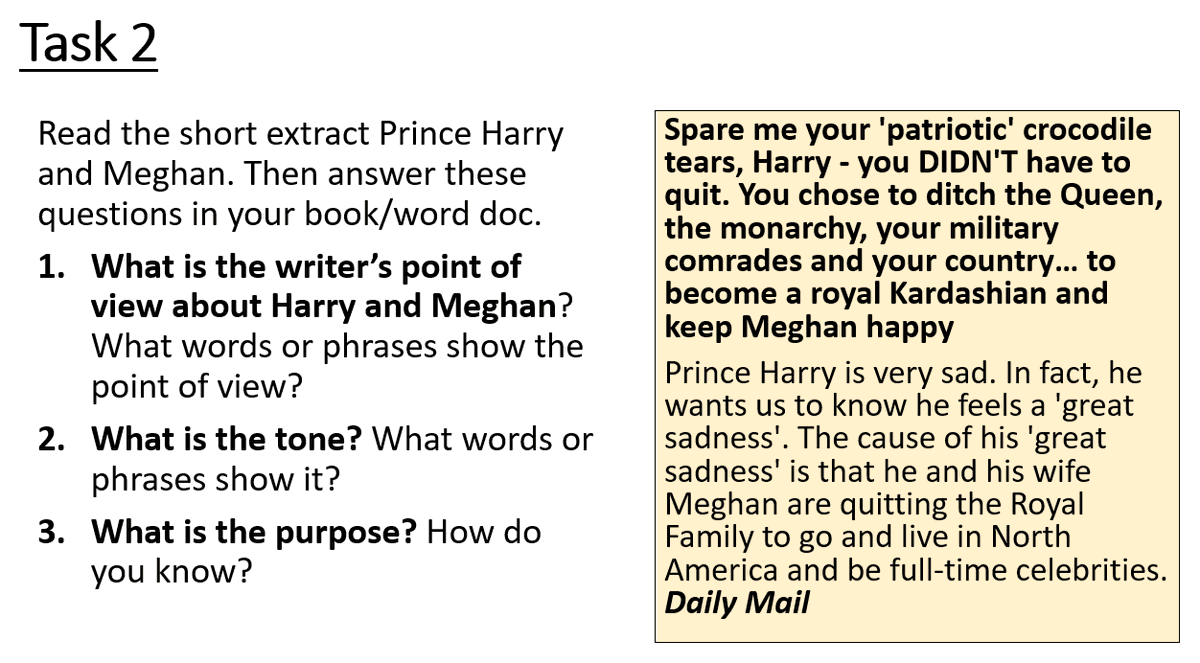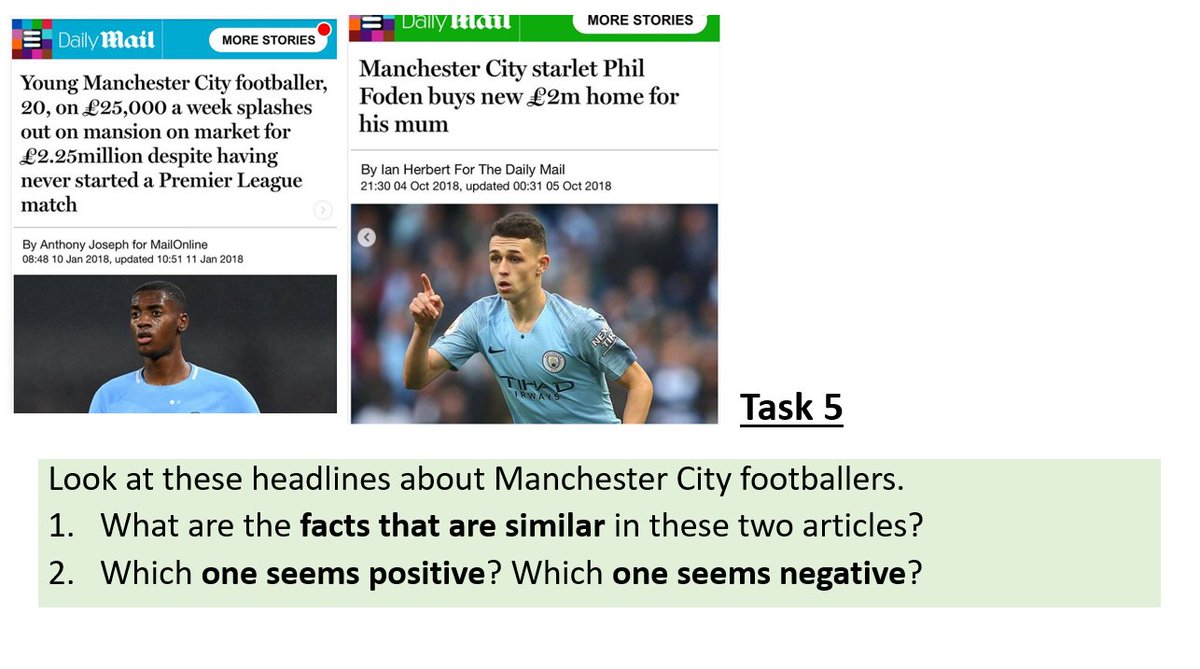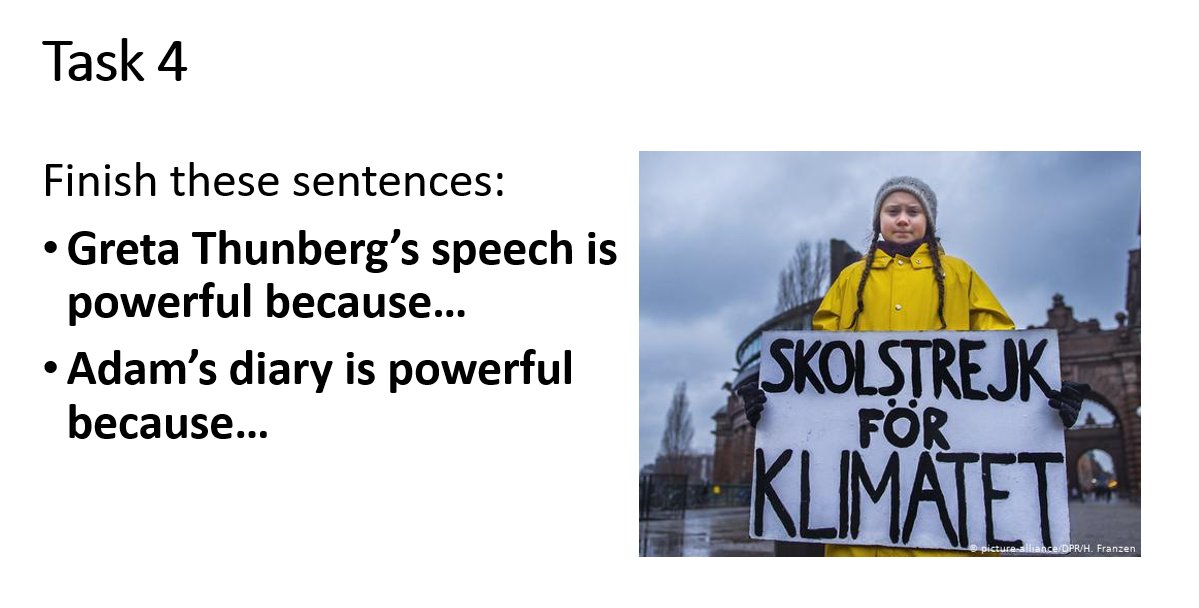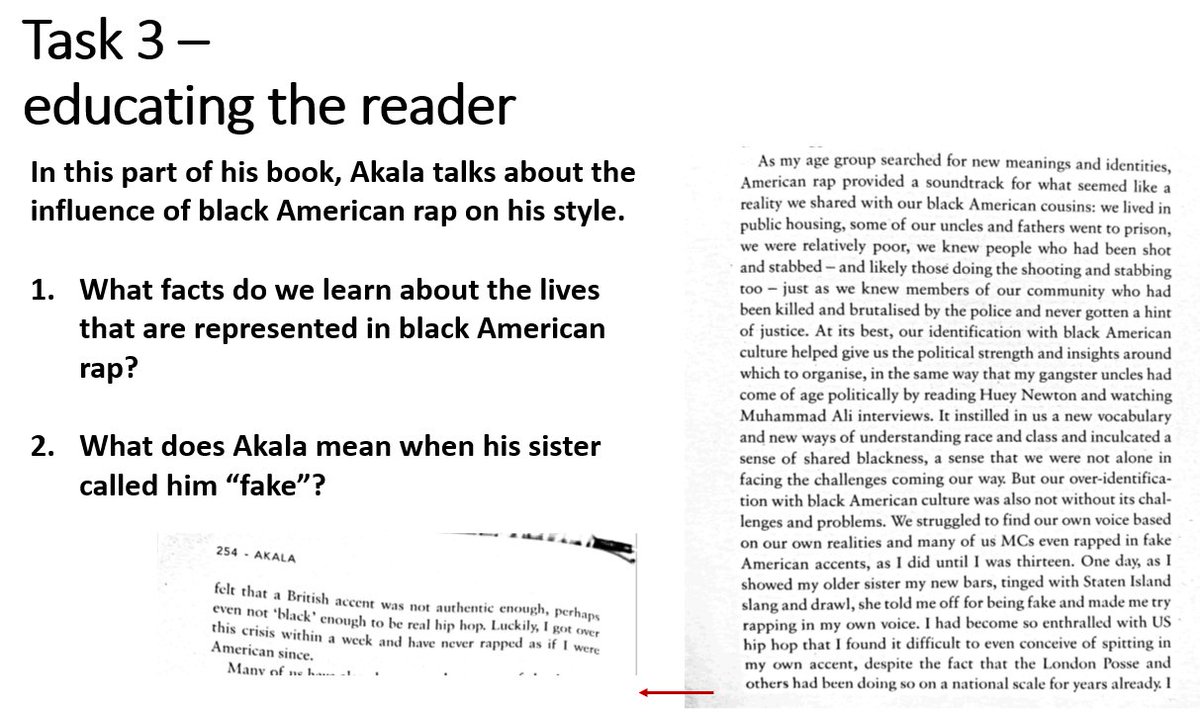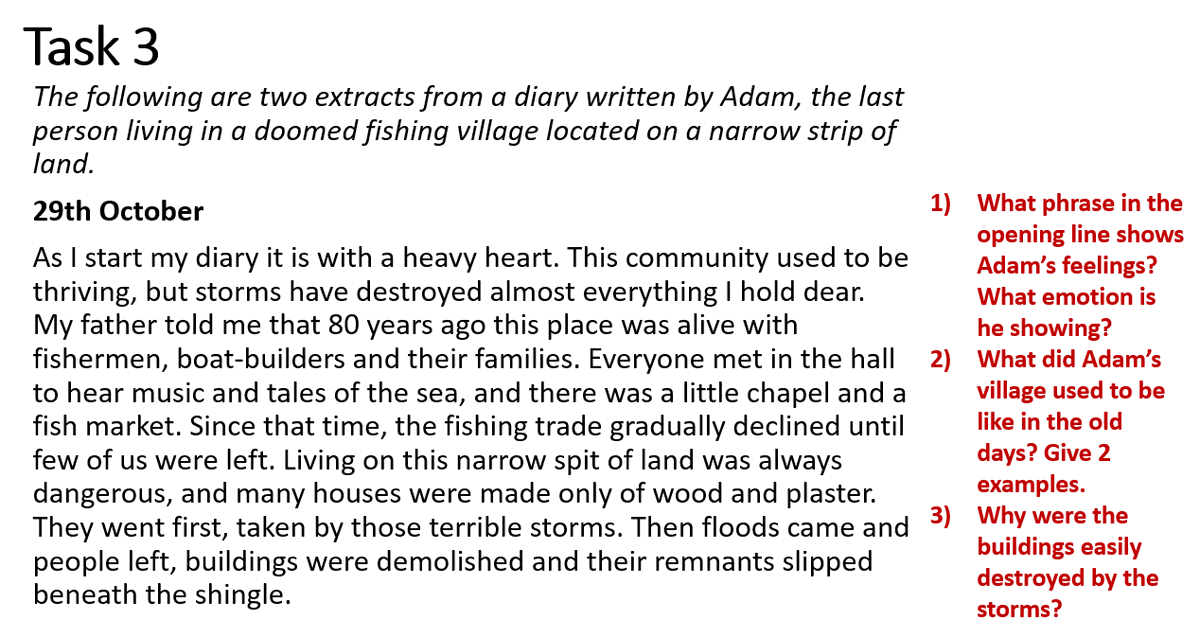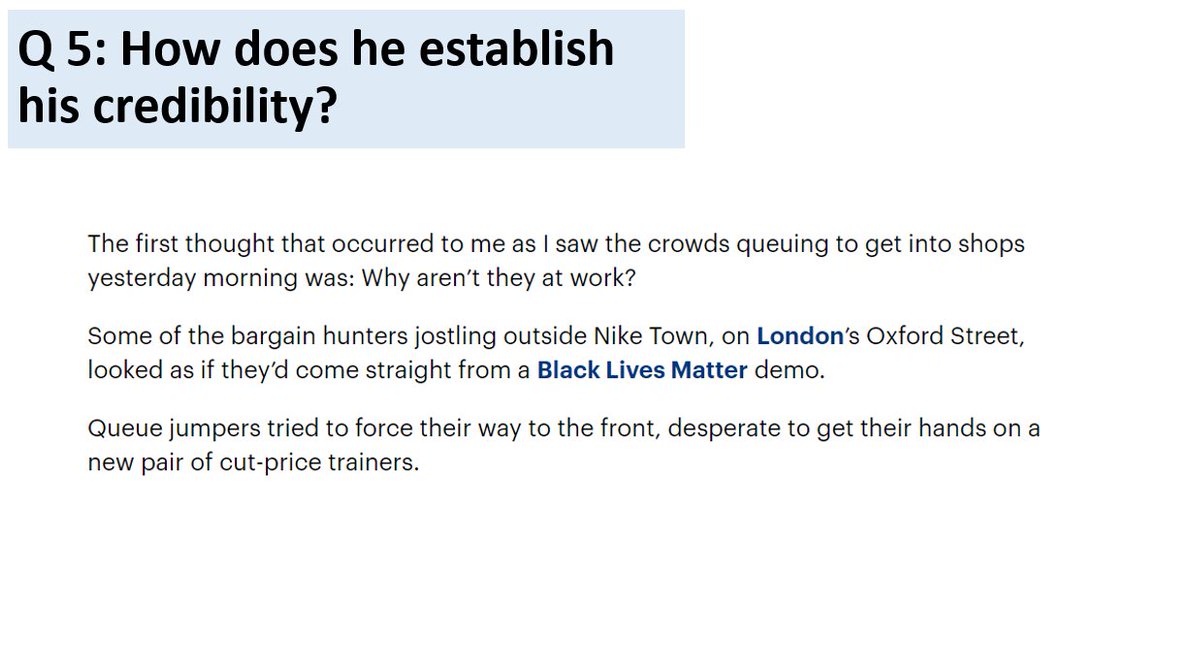The other day I mentioned that I think we should spend less time teaching kids to spot persuasive techniques and more time teaching them to spot arguments & flaws in arguments. Here are few ideas on how that might work in practice. I'll drop a resources link at the end /1
Focus on enabling pupils to think as they read. This means asking them to look at top level meaning before diving into language or techniques. Grab a load of different texts and look at the writer's message. Don't be afraid of opinionated stuff! /2
If you aren't an expert reader, it can be really difficult to accurately ascribe tone (and therefore after meaning) as you read. "Prince Harry is very sad" can be read as purely literal by pupils who read word by word or miss the tone cues. They need to practise this skill /3
Stand out obvious examples to us can still be challenging for readers who not confident as critical readers. When pupils are used to reading purely factual texts, they get into the habit of reading texts at face value. /4
Sometimes the simple task of identifying positive and negative can through up misconceptions. There was no point in me diving into look at any form of analysis if pupils were misunderstanding the overall point/meaning of a text. So that's what we are doing. Over and again. /5
Then we looked at different styles of writing - Greta's UN speech and a first person narrative by a fisherman. Each powerful in their own way but very different. We needed to recognise what each text was powerful for (message) and then how/why (technique). /6
Ok, so how did I tackle with the whole persuasion thing? Well, I started with ethos - how do writer's establish credibility to speak on the topic? Sometimes it's obvious (see below) because the writer just lists expertise for us - wooo. /7
Often credibility comes from a writer's ability to educate us. Educating readers goes beyond the old writing triplet of inform, explain, describe. These writer's allow us into their worlds, we learn to see things from their point of view. /8
Being able to see where writers wish to educate allows us to also see pathos and their logic. Logic (logos) of course is not universal. If lockdown has taught us anything, it is that facts and statistics are not without bias. /9
Full circle then to first identifying a writer's argument, their perspective, and potential bias. These will dictate the writing choices they make: the abundance or indeed absence of certain techniques. Perhaps analysing a lack of persuasive techniques should be a thing? /10
These thoughts, such as they are, were hastily thrown together over the last few weeks. However, if you like the powerpoints included - you can find them here https://www.dropbox.com/sh/inr1b32dix3tjip/AAB8MOjdszSLsxgS41Tn81GJa?dl=0 /fin

 Read on Twitter
Read on Twitter